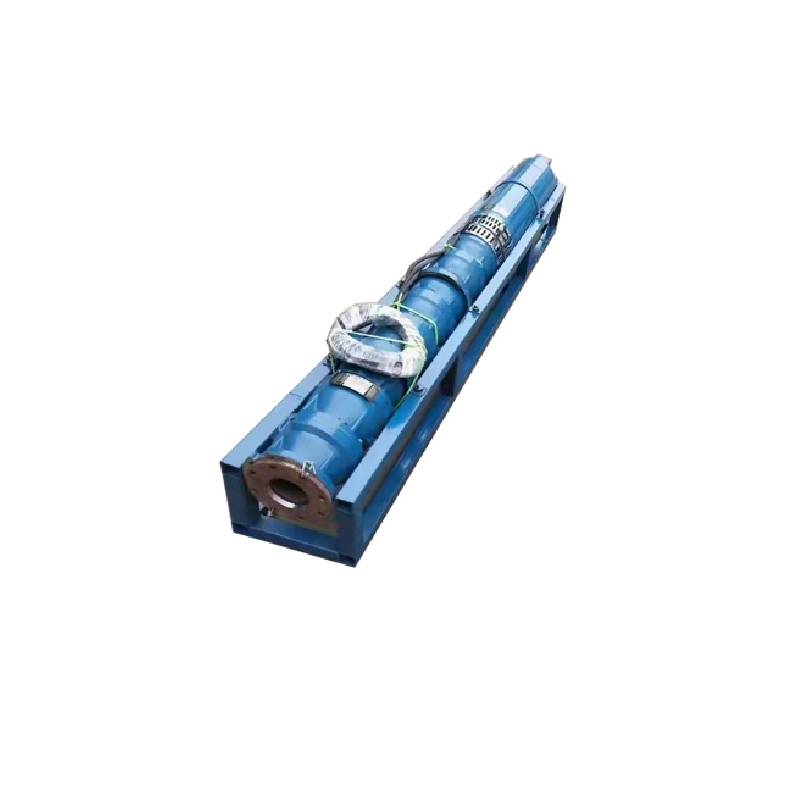Nov . 08, 2024 00:01 Back to list
Efficient Deep Bore Well Submersible Pumps for Reliable Water Supply Solutions
Deep Bore Well Submersible Water Pumps A Comprehensive Overview
Deep bore well submersible water pumps have become essential tools in the modern world, especially in areas where conventional water supply systems are inadequate. These pumps are specifically designed to operate underwater, efficiently drawing water from deep underground sources to the surface. With their efficiency and durability, they are widely used for agricultural, municipal, and industrial applications. In this article, we’ll explore the workings, advantages, applications, and maintenance of deep bore well submersible water pumps.
How Deep Bore Well Submersible Pumps Work
A submersible water pump consists of a motor and a pump that are combined into a single unit. Typically located deep in a borehole, the motor is sealed to prevent water ingress, ensuring reliable operation. When activated, the motor drives an impeller which creates a negative pressure that pulls water into the pump. The water is then pushed through a series of impellers and diffusion chambers, allowing it to flow up the rise pipe to the surface. This process is efficient because the pump is submerged, reducing the risk of cavitation, which can occur in surface pumps due to low pressure.
Advantages of Submersible Pumps
1. Efficiency Submersible pumps are known for their energy efficiency. Operating underwater reduces friction losses, allowing for better performance and helping to lower electricity costs.
2. Durability Built to endure harsh conditions, submersible pumps are typically made from high-quality materials resistant to corrosion and wear. This durability ensures a longer lifespan compared to other types of pumps.
3. Less Noise Since these pumps operate underwater, they produce minimal noise compared to surface pumps. This feature is particularly beneficial in residential areas where noise pollution is a concern.
4. High Flow Rates Submersible pumps can handle higher volumes of water compared to surface-mounted pumps, making them suitable for various applications, including agricultural irrigation and municipal water supply.
5. Space Saving Being submerged allows for efficient space utilization, especially in areas where surface area is limited. This feature is particularly advantageous in urban settings.
Applications of Deep Bore Well Submersible Pumps
Deep bore well submersible pumps are utilized in a variety of sectors
- Agriculture Farmers rely on these pumps for irrigation, especially in arid areas where water scarcity is a significant concern
. They facilitate access to groundwater, allowing for consistent crop production.deep bore well submersible water pump

- Municipal and Domestic Use Many municipalities use submersible pumps to supply water to households. They are instrumental in ensuring that residents have a reliable source of clean drinking water.
- Industrial Applications Industries that require large amounts of water, such as those in manufacturing and construction, utilize submersible pumps for their water needs.
- Environmental and Well Rehabilitation These pumps are employed in environmental assessments and remediation projects. They are effective in extracting contaminated groundwater for treatment.
Maintenance of Deep Bore Well Submersible Pumps
While submersible pumps are robust and efficient, regular maintenance is essential to ensure their longevity and optimal performance
1. Regular Inspections Periodic inspections can help identify any wear and tear or possible issues before they become serious problems. Check seals, bearings, and impellers for signs of damage.
2. Silt and Debris Removal Ensure that the well is free from silt and debris, as these can clog the pump and reduce efficiency. Installing a filter can help with this issue.
3. Electrical Connections Regularly inspect the electrical connections for any signs of corrosion or damage to ensure the motor operates properly.
4. Water Quality Testing Testing the water quality is crucial, especially for drinking water applications. Contaminated water can damage the pump and pose health risks.
5. Professional Servicing For complex issues, it’s advisable to consult with professionals who specialize in submersible pump repair and maintenance.
Conclusion
Deep bore well submersible water pumps are indispensable for accessing groundwater efficiently and sustainably. Their design, efficiency, and diverse applications make them suitable for various sectors, from agriculture to municipal water supply. Proper maintenance is key to ensuring their reliability and performance. As the demand for clean water continues to grow, the significance of these pumps in promoting sustainable water usage cannot be overstated. By investing in high-quality pumps and maintaining them well, users can ensure a steady supply of water for years to come.
-
Water Pumps: Solutions for Every Need
NewsJul.30,2025
-
Submersible Well Pumps: Reliable Water Solutions
NewsJul.30,2025
-
Stainless Steel Water Pumps: Quality and Durability
NewsJul.30,2025
-
Powerful Water Pumps: Your Solution for Efficient Water Management
NewsJul.30,2025
-
Oil vs Water Filled Submersible Pumps: Which is Better?
NewsJul.30,2025
-
Deep Well Pumps: Power and Reliability
NewsJul.30,2025
-
 Water Pumps: Solutions for Every NeedWhen it comes to handling dirty water, the dirty water pump is a must-have.Detail
Water Pumps: Solutions for Every NeedWhen it comes to handling dirty water, the dirty water pump is a must-have.Detail -
 Submersible Well Pumps: Reliable Water SolutionsWhen it comes to ensuring a reliable water supply, submersible well pumps are a top choice.Detail
Submersible Well Pumps: Reliable Water SolutionsWhen it comes to ensuring a reliable water supply, submersible well pumps are a top choice.Detail -
 Stainless Steel Water Pumps: Quality and DurabilityWhen it comes to choosing a water pump, the stainless steel water pump price is a crucial factor.Detail
Stainless Steel Water Pumps: Quality and DurabilityWhen it comes to choosing a water pump, the stainless steel water pump price is a crucial factor.Detail
